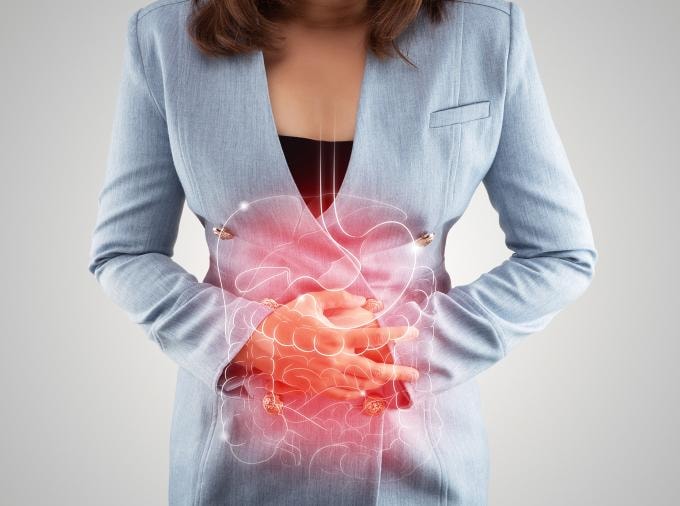Warning signs of stomach disease
Belching, nausea, loss of appetite, epigastric pain... can be symptoms of gastroesophageal reflux, gastritis or duodenal ulcers, stomach cancer.
Belching, nausea, loss of appetite, epigastric pain... can be symptoms of gastroesophageal reflux, gastritis or duodenal ulcers, stomach cancer.
Master, Doctor Nguyen Thi Ngoc Bich, Center for Endoscopy and Endoscopic Surgery of the Digestive System, Tam Anh Hospital, Ho Chi Minh City, said that the number of people suffering from stomach diseases is increasing, but many people are still very subjective and take medicine on their own. This habit will aggravate the condition of gastritis or stomach ulcers if they already have the disease, missing the "golden" time for early detection and treatment of stomach cancer. Below are some warning signs that the stomach is showing abnormal signs and the patient needs to see a doctor.
Belching:It is a normal phenomenon of the body, but if you burp frequently, have heartburn, acid reflux, or are accompanied by other symptoms, it could be a sign of gastroesophageal reflux disease, Helicobacter Pylori infection, gastric or duodenal ulcers...
Sudden severe pain in the epigastric region:The pain can spread to the back, the abdomen feels resistant... are warning signs of a perforated stomach. This is a dangerous condition, requiring emergency care, can lead to shock, even death. This complication is common in people with peptic ulcers or when eating, the patient swallows a foreign object that causes a perforated stomach.... Each epigastric pain with different characteristics can be a warning sign of different stomach problems.
Epigastric pain that starts when hungry or after eating too much is often caused by gastritis or duodenal ulcers. Dull, prolonged, irregular pain can be a potential sign of stomach cancer...
 |
Dull, prolonged abdominal pain, accompanied by digestive disorders,... can warn of stomach diseases. Photo:Shutterstock |
Vomiting and nausea:are symptoms that can occur when the patient has stomach-related diseases such as upper gastrointestinal bleeding due to gastric ulcers, gastritis, gastroesophageal reflux disease, pyloric stenosis... Frequent vomiting can damage the esophageal mucosa, causing problems such as esophagitis, tearing of the gastric mucosa in the cardiac region, and can easily lead to dehydration, loss and disturbance of electrolytes. In severe cases, the patient may have low blood pressure, impaired perception...
Anorexia, weight loss:If the stomach is inflamed or ulcerated, the patient will feel pain in the epigastric region when full or hungry. Gastric inflammation or ulceration leads to poor digestion of food, bloating, flatulence and discomfort. All of this makes the patient lose appetite, resulting in weight loss. Loss of appetite and unusual weight loss can also be a sign of stomach cancer. If stomach cancer is detected early, it can be cured and prolong the patient's life.
Vomiting blood or passing black stools:are two typical signs of gastrointestinal bleeding. Specifically, for vomiting, the patient may vomit black blood or fresh blood mixed with food; while the stool will be black or dark red. Bleeding will cause the patient to be anemic, leading to symptoms of dizziness, lightheadedness, low blood pressure...
Gastrointestinal bleeding due to gastric and duodenal ulcers requires immediate emergency care, otherwise it can cause shock and threaten the patient's life. Gastrointestinal bleeding can occur when the stomach lining is severely damaged by causes such as drinking a lot of alcohol, abusing anti-inflammatory painkillers, and prolonged stress. In people with gastric ulcers, the ulcer can become congested and bleed if irritated by coffee, spicy foods, etc.
Doctor Ngoc Bich recommends that stomach diseases often need to be treated for a long time and the symptoms are easily confused with each other. Therefore, patients should not be subjective, should see a doctor if they notice unusual signs for timely treatment and to prevent complications.


